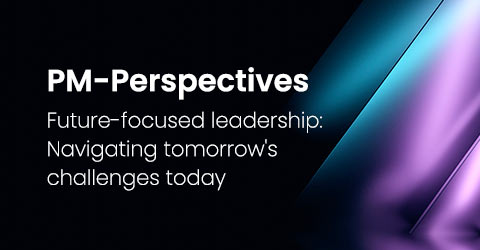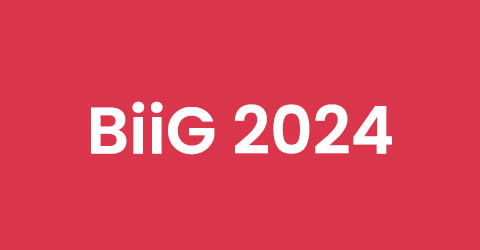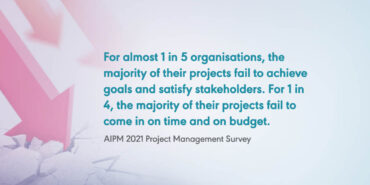Are your projects and programmes set up for success?

Preparation is everything and that’s certainly the case when it comes to achieving quality project execution. So what do you need to consider to ensure your assurance activities are properly scoped and your project or programme is set up for success?
While every situation is unique, there are a number of recurring themes and trends in project delivery that can impact performance. Considering how relevant these are to your organisation or delivery environment – as well as keeping specific delivery attributes in mind – and planning assurance activities accordingly, is a key step to ensuring your projects and programmes are set up for success.
Here, we look at some of the top themes and trends to take into account at the start of each initiative:
Themes
- Understanding your customer, their needs and requirements, as well as the scope and ultimate goals and objectives of the project, is essential to ensuring it’s set up for success.Consider: Is the organisation you choose to support your project really listening to your needs?
- Sponsor engagement, and appropriate matching of sponsor style to the initiative at hand, remains a critical success factor regardless of industry or business/technology focus.Consider: Is your sponsor the person with the most ‘skin in the game’, and is your sponsor the person best suited to that role on this initiative?
- Delivery complexity is often underestimated, with low estimates and limited budget/contingency compared to the eventual effort and budget required to deliver. A desire to maintain scheduled delivery dates exacerbates this pressure on complexity, and often results in a compromise on quality.Consider: How well does the approach match the level of complexity? And is time and budget contingency available if the situation changes?
- Stakeholder transition is an important consideration in multi-year programmes and projects. People are promoted or take extended leave, and restructures happen. Detailed resource and succession planning can mitigate the impact of this disruption.Consider: Who are your key stakeholders, and do you have a succession plan for them if they move?
- Quality of testing is difficult to plan for and to execute. Test strategies sometimes do not reflect the complexity of the solution. The ability to test the solution is often compromised by the lack of integrated, robust and production-like test environments.Consider: How well do your test environments support all projects in your portfolio?
Trends
- Delivery approaches An increasing number of organisations are adopting hybrid delivery models to blend the most appropriate aspects of project delivery – i.e. iterative, Agile and/or waterfall methods. This approach adopts best practice aspects of the delivery models specific to the complexity of the project, organisational needs, and organisational bias to ensure the most fit-for-purpose methods are employed.
- Team location The Covid-19 pandemic has made offsite working the new normal. While there is recognition that in some circumstances co-location of teams is a critical need, with modern technology it is not always essential. This shift has allowed us to spend less time in transit and more time focused on solving the actual project at hand. Additionally, it has allowed us to source staff across Australia based on those with top-level experience and skills rather than being limited to physical location. Hybrid working is potentially here to stay long after Covid-19 restrictions ease, meaning customers can have the best of both worlds.
- Multi-layered solutions Organisations are not one dimensional or static and therefore require solutions to problems to be adapted accordingly. Different requirements, products or business attributes are leading to multiple business solutions being designed and implemented within single projects and programmes. This approach requires clear definition of boundaries between solutions, and also a clear understanding of how to test them.
Next level assurance
Experience shows us that launching projects prematurely without a set up for success check usually leads to issues down the track. Considering these themes and trends and how they apply to your context, and planning accordingly, is a good starting point, followed by regular project health checks and reviews.
From there it’s critical to ensure that learnings and recommendations are put into action as new projects or Agile initiatives are stood up. This is where PM-Partners’ Continuous Assurance approach comes in.
Unlike traditional assurance programs where valuable IP is often wasted, Continuous Assurance draws on 25 years of industry knowledge and best practice assurance methods to convert a cycle of assurance outputs into a dynamic roadmap of prioritised performance improvements. Rather than repeating the same costly mistakes, organisations are empowered to address the root causes of delivery failure and make positive long-term changes to the way they deliver and the outcomes they achieve.
To find out more about set up for success checks and PM-Partners’ Continuous Assurance approach, contact our experts today, or call us on 1300 70 13 14.

About The Author
John Porta
Senior Principal Consultant PM-Partners
John has more than 25 years’ management and executive experience in portfolio and programme management, business transformation, roadmap development and executive leadership.
His career spans multiple sectors and includes senior management or executive positions at Toyota, Toll Group and CEVA logistics, and extensive consulting experience with Olsam Consulting and Xact Solutions.








